
Blog
Revolutionizing the Coffee Industry Insights on Equipment Trends at China Import and Export Fair 2025
The coffee industry is experiencing a significant transformation, driven by innovations in equipment coffee that enhance quality and efficiency while meeting the evolving demands of consumers. As highlighted in recent industry reports, such as the International Coffee Organization's analysis, global coffee consumption is projected to reach 200 million 60-kilogram bags by 2025, indicating a flourishing market ripe for technological advancements. At the upcoming 138th China Import and Export Fair, stakeholders will witness the latest trends in coffee equipment, ranging from state-of-the-art brewing machines to automatic roasting systems designed to optimize flavor extraction and sustainability.
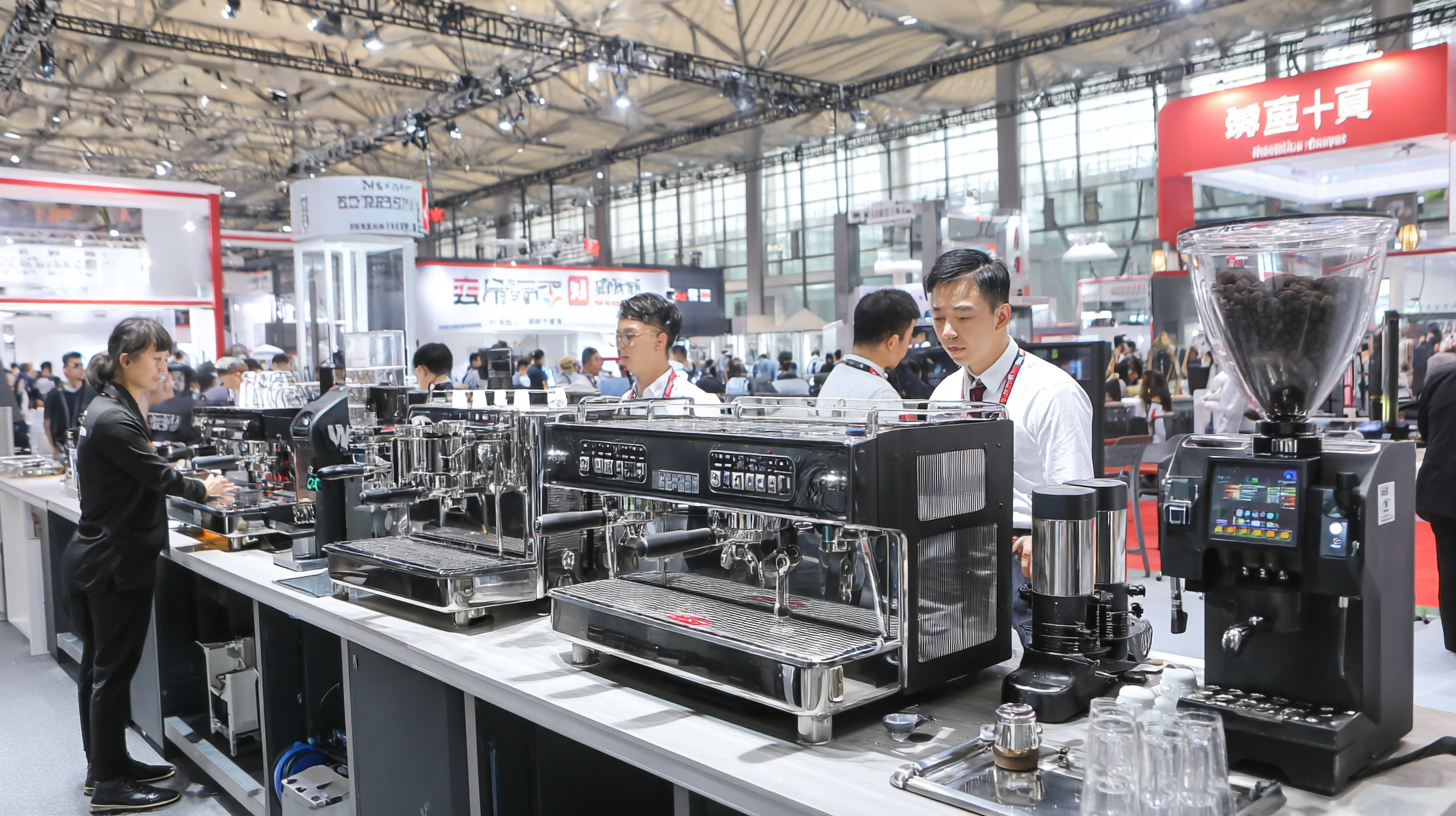
This event serves as a crucial platform for manufacturers and suppliers to showcase their innovations, which are not only tailored for traditional coffee shops but also for emerging markets focusing on specialty coffee. The integration of modern technology in equipment coffee is set to redefine industry standards and consumer experiences, paving the way for a revolution in coffee production and consumption.
Emerging Coffee Equipment Technologies Presented at the 2025 China Import and Export Fair
At the 2025 China Import and Export Fair, the spotlight will shine on groundbreaking technologies that are transforming the coffee equipment landscape. Innovative brewing devices, advanced grinders, and smart coffee machines are among the highlighted exhibits, showcasing a blend of functionality and artistry. Manufacturers are focusing on sustainability, integrating eco-friendly materials and energy-efficient designs into their products, reflecting the growing consumer demand for environmentally responsible options.
Moreover, automation is key this year, with several exhibitors unveiling fully automated systems that enhance the coffee-making process. These advancements not only streamline operations in cafés and restaurants but also cater to the growing trend of home brewing enthusiasts seeking professional-quality coffee. Attendees can expect to see technology that aids in precision extraction and consistency, ensuring every cup delivers a superior taste experience. Through these emerging technologies, the coffee industry is poised for a robust evolution, driven by innovation and a commitment to quality.
Trends Shaping the Future of Coffee Brewing Equipment in the Global Market
The global coffee brewing equipment market is undergoing a transformative phase, with innovative trends emerging that promise to redefine how coffee is prepared and consumed. According to a report by ResearchAndMarkets, the market for coffee equipment is expected to grow at a CAGR of 6.8% from 2023 to 2028, driven by the increasing demand for specialty coffee and advanced brewing techniques. At the China Import and Export Fair 2025, industry leaders are showcasing state-of-the-art equipment that incorporates smart technology, enabling baristas and homebrew enthusiasts alike to achieve precision and consistency in their coffee-making processes.
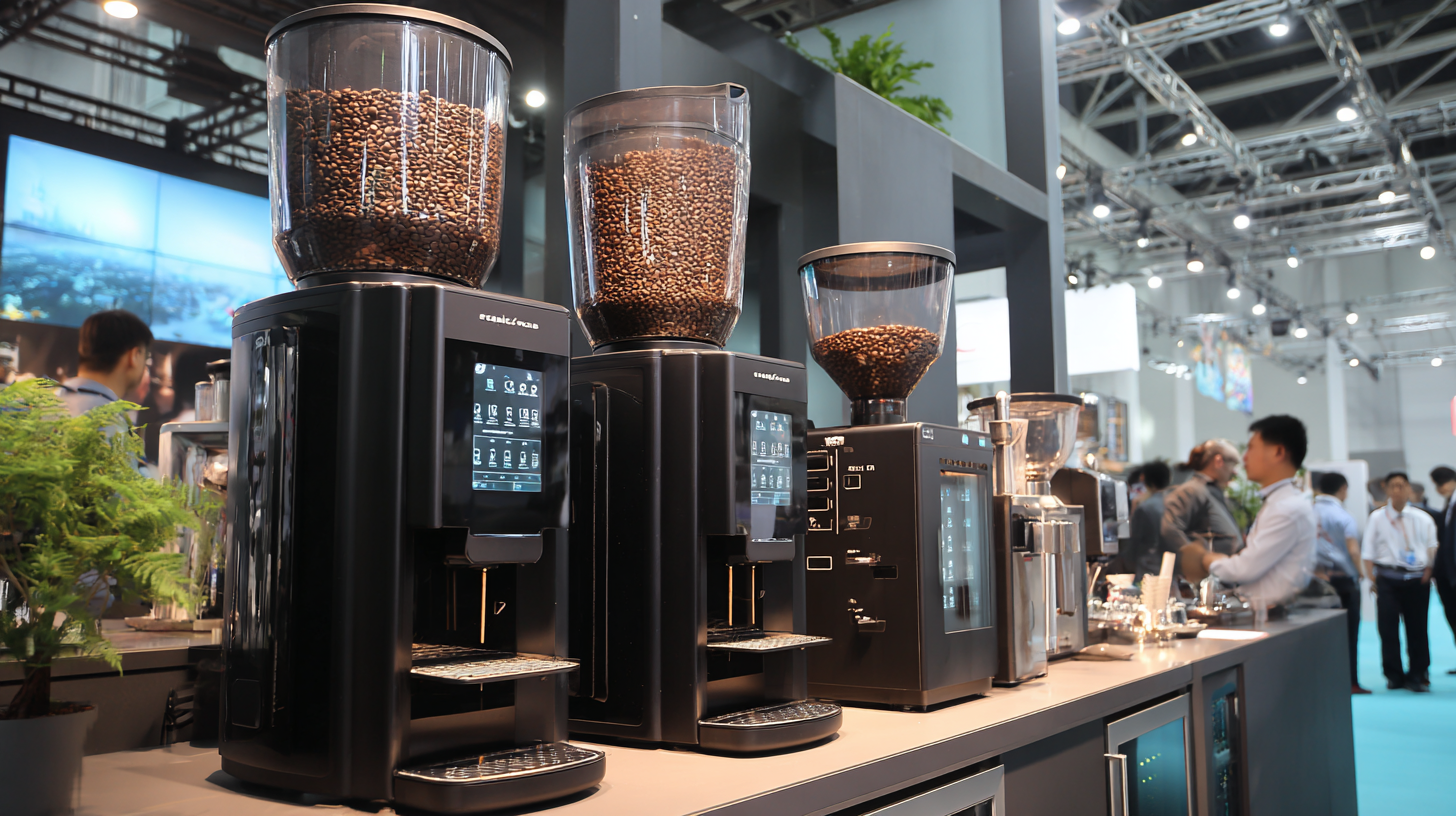
Notably, sustainability is becoming a significant trend in equipment design, with manufacturers prioritizing eco-friendly materials and energy-efficient machines. A survey conducted by the Specialty Coffee Association revealed that over 60% of coffee consumers are concerned about the environmental impact of the products they use. This shift is prompting companies to innovate with biodegradable components and minimize waste in production. As these trends continue to shape the future of coffee brewing equipment, the market is not only enhancing the coffee experience but also addressing the growing consumer demand for sustainable practices.
Impact of Automated Baristas and IoT on Coffee Shop Efficiency in 2025
As the coffee industry continues to evolve, the integration of automated baristas and the Internet of Things (IoT) technology is transforming the efficiency of coffee shops in 2025. According to a recent report from the National Coffee Association, approximately 45% of coffee drinkers in the U.S. are now familiar with automated coffee-making devices, highlighting a significant shift towards technology-driven solutions. Automated baristas not only enhance the speed of service but also ensure consistency in coffee quality, which is crucial for customer satisfaction.
Moreover, the IoT is playing a pivotal role in optimizing operations within coffee shops. A study by Statista estimated that by 2025, more than 75% of coffee retailers will implement IoT solutions to manage inventory, track supply levels, and reduce waste. This real-time data collection allows shops to make informed decisions, saving both time and resources. The combination of automated baristas and IoT technology could lead to a 30% increase in operational efficiency, enabling coffee shops to serve more customers while maintaining high standards of quality. As these trends continue to unfold, the future of the coffee industry looks poised for a revolutionary transformation.
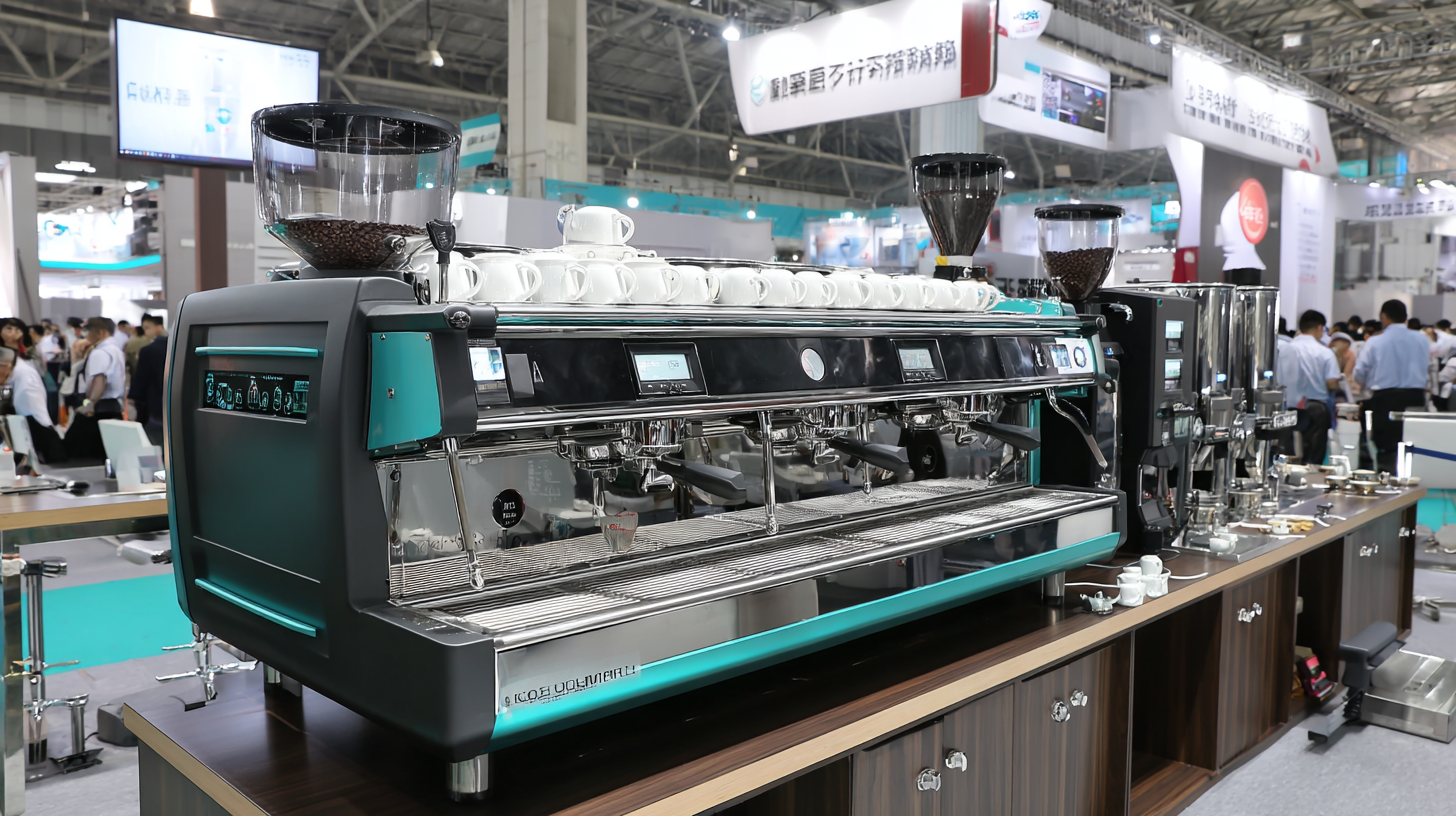
The Role of Sustainability in Coffee Equipment Innovations at the 138th Canton Fair
The 138th Canton Fair has unveiled a host of innovative trends in coffee equipment, highlighting the significant role of sustainability in shaping the future of the industry. With the growing awareness of environmental issues, manufacturers are increasingly focusing on creating eco-friendly coffee machines and accessories that minimize waste. This commitment to sustainability is not only a response to consumer demands but also a crucial element in reducing the overall environmental impact of the coffee industry.
As sustainability takes center stage, it's vital for coffee businesses to adapt to these new market dynamics. Implementing green practices can enhance brand reputation and attract a more eco-conscious consumer base. Furthermore, integrating smart technology in coffee machines can streamline operations while prioritizing energy efficiency.
Tips: When considering new coffee equipment, look for certifications that indicate sustainable practices and materials. Additionally, explore how smart technology can enhance your operations while reducing energy consumption. Staying informed on the latest trends can offer a competitive edge in this rapidly evolving market.
Trends in Sustainability Innovations in Coffee Equipment (2020-2025)
This chart illustrates the increasing trend of sustainability in the coffee equipment sector from 2020 to 2025, demonstrating a significant rise in the adoption of sustainable practices and technologies.
Market Share Analysis: Leading Coffee Equipment Brands Showcased in 2025
As we look ahead to the China Import and Export Fair 2025, the coffee equipment sector is poised for significant advancements. The market for coffee machines is expected to witness robust growth, driven by a diverse range of products, including filter coffee makers, capsule machines, and bean-to-cup devices. According to industry reports, the global market for household appliances is projected to soar from $75.72 billion in 2025 to $116.57 billion by 2032, with a growth rate of 6.39%. This trend encapsulates the expanding coffee machine market, which is rapidly becoming a cornerstone of daily life.
Tips: When considering coffee equipment purchases, focus on the application type. For example, full-service restaurants may benefit more from commercial-grade machines, whereas small cafés might opt for compact models to save space. As local brands dominate the Chinese coffee market, understanding shifting consumer preferences is crucial. With over 12,000 new coffee shops opening last year, embracing innovation and quality in equipment will be essential for new entrants vying for market share.
Furthermore, the smart vending machine market, projected to grow at a staggering 18.2% annually, signifies a shift towards convenience and technology integration in the beverage sector. By the time we reach 2032, the global smart vending market is expected to increase from $11.47 billion to $36.89 billion, illustrating a burgeoning consumer demand for automated coffee solutions that enhance service efficiency and customer experience.
Related Posts
-
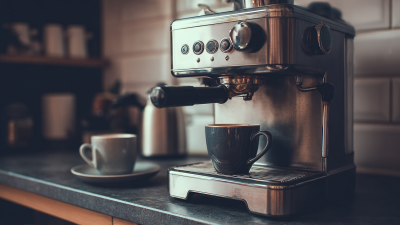
Unlocking the Benefits of the Best Single Brew Coffee Machines for Perfect Mornings
-
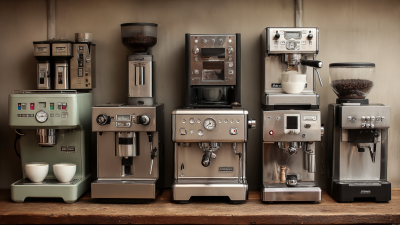
Innovative Types of Best Equipment Coffee Machines for Every Coffee Enthusiast
-
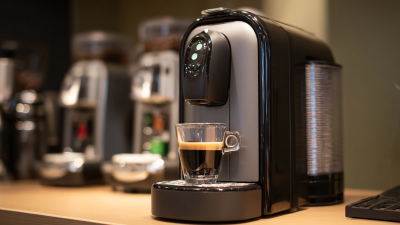
7 Amazing Benefits of Using Single Cup Coffee Machines
-

5 Best Coffee Bean Machines That Will Transform Your Brewing Experience
-
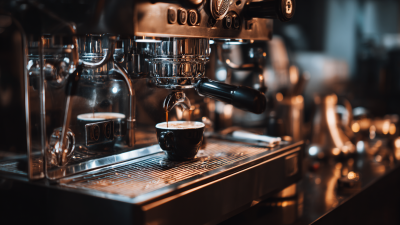
The Ultimate Guide to Choosing Coffee Equipment: Industry Insights and Expert Recommendations
-
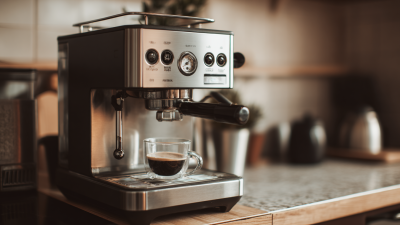
How to Choose the Perfect Coffee Cup Machine for Your Home
